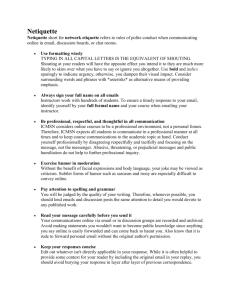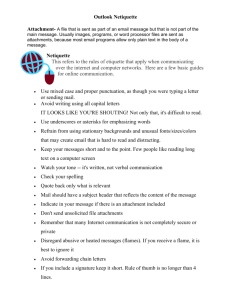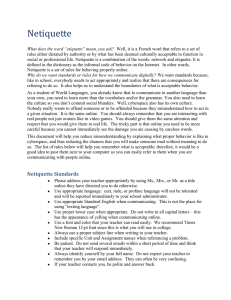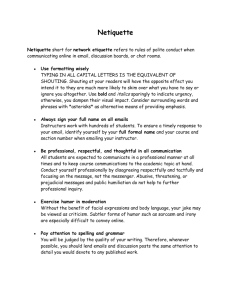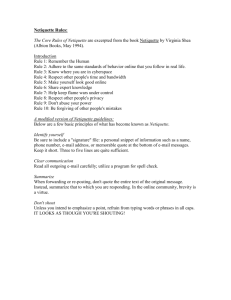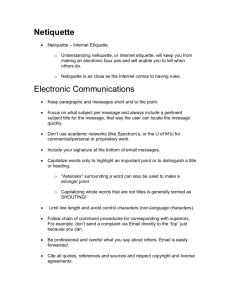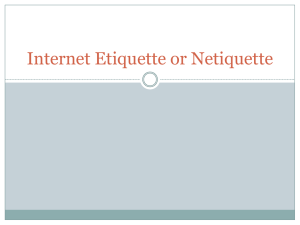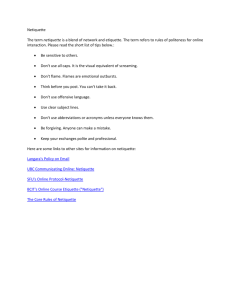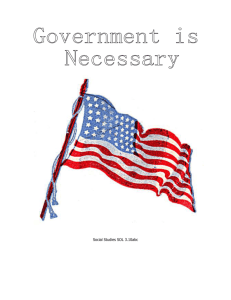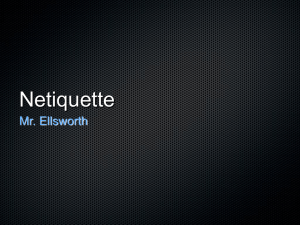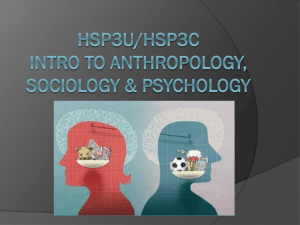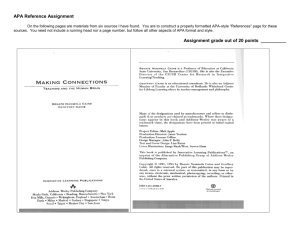Document
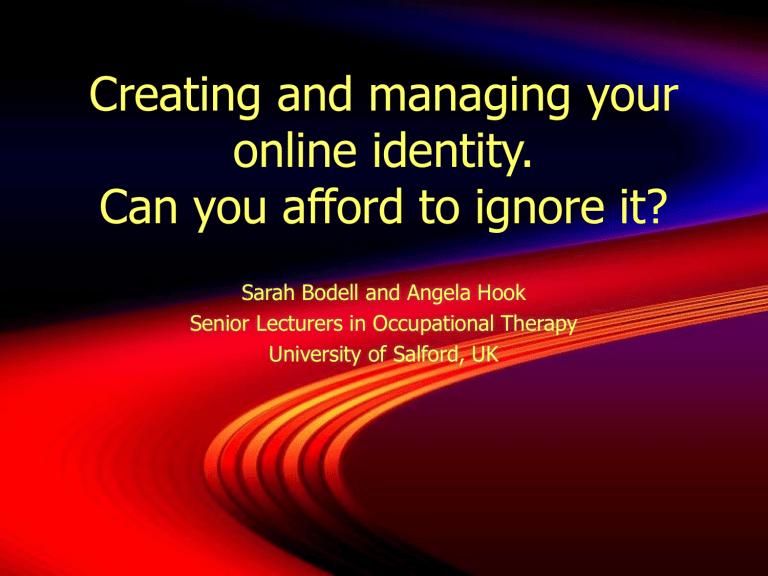
Creating and managing your online identity.
Can you afford to ignore it?
Sarah Bodell and Angela Hook
Senior Lecturers in Occupational Therapy
University of Salford, UK
Who am I?
“We are known by what we do”
(Christiansen 2004, p122)
Identity and context
F2f identlty is context dependent
F2f contexts may be separate and discrete
The online community is vast and interwoven
Who am I online?
I could be brown, I could be blue I could be violet sky.
I could be hurtful, I could be purple, I could be anything you like. (Mika, Grace Kelly, song lyric
)
People differ in how much their unconscious needs and emotions surface in their online identities (Suler 2002)
Who am I online?
I would love to be windswept and interesting
I would like to be "Meredith (Merry for short)
Carmichael", a Marine Biologist.
I want to be me :D
Eternally hopeful, especially in the face of adversity
I am wild
…
Online identity and
Professional Identity
Professional identity stems from professional socialization and development (McGowen &
Hart, 1990).
This includes the acquisition of specific knowledge and skills and the development of new values, attitudes and behaviours (Hall,
1987; McGowen & Hart, 1990; Watts, 1987).
Standards for Professional
Practice
You must keep high standards of personal conduct.
You must behave with honest and integrity
Your behaviour must not damage the public
’ s confidence in you or your profession.
If a health professional does not meet HPC standards registration can be revoked.
HPC Standards of Conduct, Performance and Ethics (2008)
Is this ok?
Too scary?
Some people think they can escape risk by escaping being online, but which is worse-having someone see you and know that you have some flaws or being invisible? http://michelemartin.typepad.com/thebambooprojectblog/2007/10/lets-get-naked.html
A modern day professional necessity?
Reputation enhancing
Profile development
Professional networking
Engaging with a global community
CPD
Tips
Build you identity carefully
Choose the best tools for the job
Manage and monitor your identity regularly
Maintain your visibility
Adhere to netiquette
Definition
Network etiquette
Netiquette is a set of rules for behaving properly online.
“When you enter any new culture -- and cyberspace has its own culture -- you're liable to commit a few social blunders.
You might offend people without meaning to. Or you might misunderstand what others say and take offense when it's not intended. To make matters worse, something about cyberspace makes it easy to forget that you're interacting with other real people”
Virginia Shea http://www.albion.com/netiquette/introduction.html
Communication on the internet is very quick, and very easy. So it can be a real case of act in haste, repent at leisure!
If you remember one thing, it should be to think before you write anything!
Shouting
People who type with the 'Caps Lock' on, and type ALL IN CAPITALS ARE
CONSIDERED TO BE SHOUTING, which is very rude in almost any environment!
Remember the human
“Humans exchanging email often behave the way some people behind the wheel of a car do: They curse at other drivers, make obscene gestures, and generally behave like savages. Most of them would never act that way at work or at home.
But the interposition of the machine seems to make it acceptable”
Would you say it to the person's face?
Be ethical
You are a professional first and foremost
Don’t jump to conclusions
Follow your Code of Professional Conduct
Don’t plagiarise someone else’s work
Lurk before you leap
Know where you are
Professional forum/chat forum/facebook/blog etc may all require a different style of communication and delivery
Joking around
Be careful when using humour. It is important to remember that tone of voice often plays an important role in letting people know that you are making a joke.
Because people can't hear your voice they may think you are being sarcastic.
Some people use slang such as LOL
(laugh out loud) when joking online.
Make yourself look good
You won't be judged by the colour of your skin, eyes, or hair, your weight, your age, or your clothing.
You will, however, be judged by the quality of your writing. Spelling and grammar count!
Know what you are talking about and make sense
In summary
Anonymity vs the real you
Treat others as you would like to be treated
Everything you write and put out on the web is a reflection of you.
